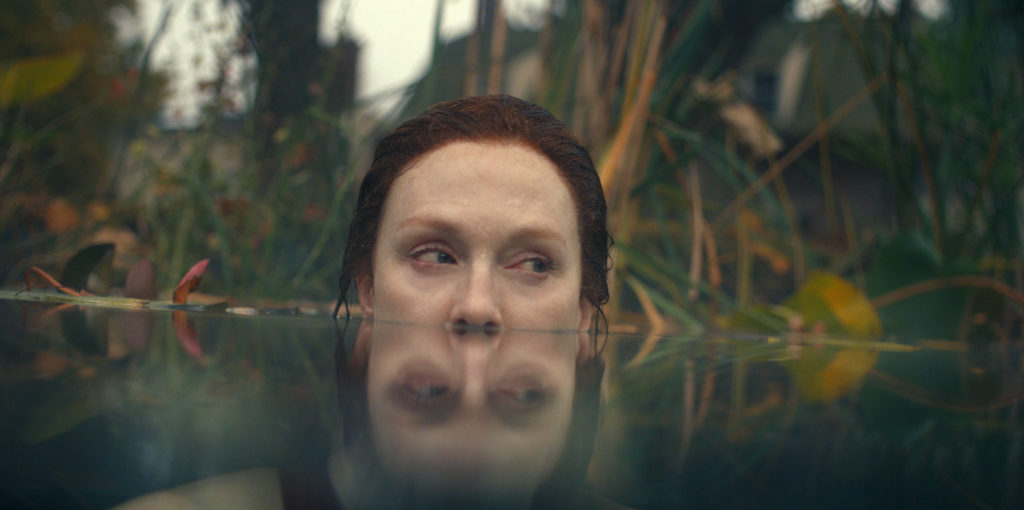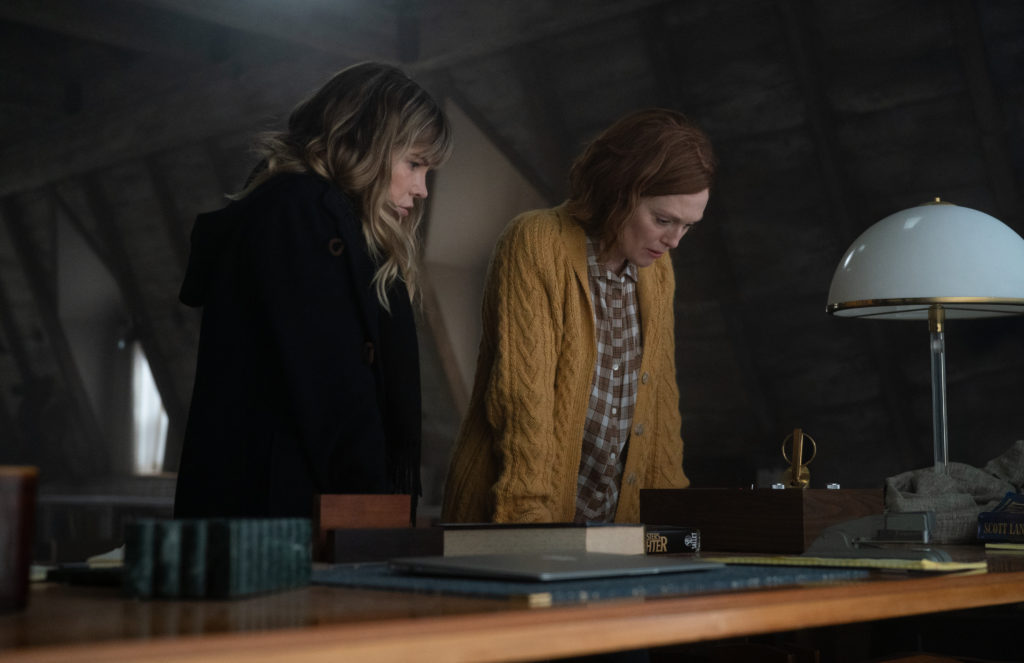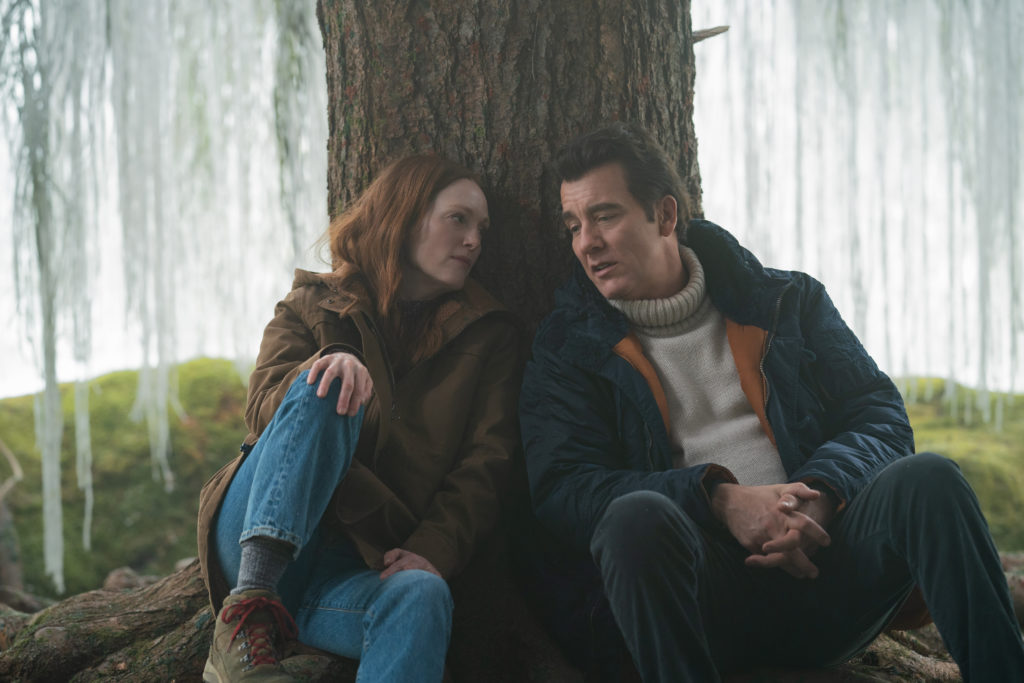Julianne Moore, a legendary screen presence equipped with an affecting expressiveness, is gearing up to enrapture audiences once again in the new Apple TV+ miniseries Lisey’s Story. Adapted from a Stephen King mystery novel of the same name, Moore stars as the recently widowed titular character as she comes to grips with the unsettling phenomena surrounding her the death of her husband—played Clive Owen. Directed by Chilean filmmaker Pablo Larrain and adapted by King himself, the narrative explores grief through the lens of genre fiction, utilizing paranormal twists and turns to sustain a suspenseful and perplexing atmosphere. We recently spoke with Moore about her experience collaborating with both Larrain and King, and the unique storytelling potential of the miniseries format.
What initially drew you to this project?
“Well, I’m a big Stephen King fan, I mean who isn’t, right? However, this was a book that I wasn’t familiar with, but he had written all of the teleplays, so when it came my way, I had every episode. I was fascinated with the narrative’s depiction of a long-term romantic relationship and how central it was in their lives. Anyone who has been in a lasting union knows how special they are, since this person becomes your life’s witness as you go along and build something unique together. However, Lisey’s Story is a little unusual because I think so many romantic depictions are about the preceding events to building a marriage, and that’s the end of the movie. I like that this was an exploration of what happens after that, told in a both a supernatural and psychological sense.”
Become an S Insider
The latest in fashion, beauty, design, and arts & culture.

Was it extra special having Stephen King write the teleplay for this series? Did he bring an elevated contextual heft to each script?
“It was amazing to have him be so involved, I mean it really was. Generally, when someone is going to adapt his written work for the screen, he gives them full creative autonomy. But Lisey’s Story was special to him and he really wanted to be involved—he was a magnificent creative partner. He was always there as a great collaborator, as somebody to ask questions about the teleplays, while also offering his full support. There was one day when Clive and I were struggling with a scene and Stephen quickly went and rewrote that part for us. He was always available and came to set with a positive attitude. You kind of forget after a while that he’s Stephen King, the cast and crew got used to him being around, it’s like ‘oh Stephen’s here!'”

Do you feel like there’s any added pressure when assuming the role of a character that has already been personified by the readers of the source material?
“Uhm, yeah! There’s nothing you can really do about it other than hoping that you meet their expectations. However, when I’ve read a book and watched its adaptation, I try to give some creative leeway for what they’re showing me versus what I’ve experienced in my head—I find myself usually being able to make the leap pretty well. I’m very interested in uncovering how a story can be realized in a particular way. Also, the imagination can be pretty elastic, merging your ideas with someone else’s in unexpected ways.”
This show is truly a unique viewing experience. The last production that I can remember that was on a similar televisual plane was Twin Peaks. Do you think that the omnipotence of streaming services has allowed for a peculiar project like this to exist?
“Yes, and thank you for the comparison to Twin Peaks! There is so much source material out there, you always think to yourself if you wanted to adapt it, how would I tell this story, how do I condense it into two, two-and-a-half hours? There is definitely a lot of narratives that went by the wayside because nobody could properly condense them. But now that we do have these options with streaming and with limited series, you’re able to tell the story in a protracted way and give it the time that it needs, and believe me, there’s a lot of stuff in Lisey’s Story that didn’t even make it into these episodes.”

The miniseries definitely seems to be in the midst of a very exciting renaissance, with many ambitious projects being released that are also very artful and toy with established narrative conventions.
“I think so too, and I’m so curious because I know the story backwards and forwards, but I wasn’t prepared for the fact that there is a lot of mystery in it. There’s a lot left for the audience to figure out themselves, but I think that that’s the fun of it too: that it is challenging and stimulating. Both Pablo as the director, and Stephen as writer, leave clues all the time too, which allows the audience to discover in the same way that Lisey is trying to unravel what is happening to her. The viewer goes through the story with her, which is cool.”
How do you feel that this project has diversified your extensive resume and how has it prompted growth both artistically and professionally?
“For me, I’ve been very lucky to follow my interests with work, I try not to think of choosing a project in terms of resume building. With Lisey’s Story, it was very special to create such a tight relationship with Pablo, I trusted him and would lean heavily on him for guidance. Sometimes he would push me really far on something and he might come in the next day and say ‘no Julie, I’m not going to use that.’ I knew that his decisions were always in service of telling a compelling story, as well as augmenting visceral performances from me and the rest of the cast.”

